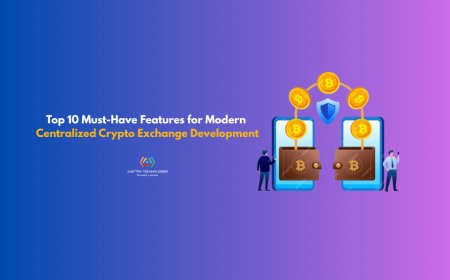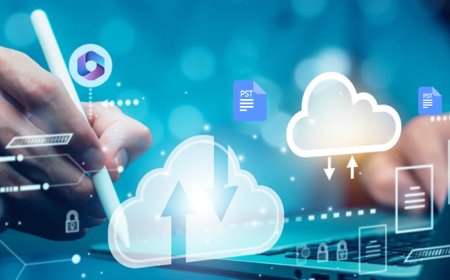How LLM Development Companies Empower Enterprise Innovation.

Introduction
The rise of Large Language Models (LLMs) has brought about a revolution in the way businesses interact with data, automate processes, and deliver value. From automating customer support to driving business intelligence, the scope and scale of LLMs are expanding rapidly. Enterprises across industries are beginning to understand the transformative potential of these AI-powered solutions. However, developing, deploying, and optimizing LLMs for enterprise use cases is no small feat this is where specialized LLM development companies come into play.
These companies offer LLM development solutions tailored to meet the specific needs of businesses, enabling them to drive efficiency, foster innovation, and maintain a competitive edge. In this comprehensive guide, we explore how enterprise LLM solutions are reshaping industries, the role of LLM development firms, key use cases, and how businesses can leverage LLM solutions for strategic advantage.
Understanding Large Language Models in the Enterprise Context
Before delving into how LLM development companies empower innovation, it's important to understand what LLMs are and why they are significant in the enterprise domain.
LLMs are advanced machine learning models trained on massive amounts of text data. They are capable of understanding, generating, summarizing, translating, and reasoning about human language. Notable examples include OpenAI's GPT models, Googles PaLM, and Metas LLaMA.
In the enterprise context, LLMs can be used for:
-
Automating customer support
-
Enhancing knowledge management
-
Personalizing marketing
-
Powering advanced analytics
-
Assisting legal and compliance teams
-
Improving employee productivity
However, realizing these benefits requires expertise in AI, data engineering, model fine-tuning, and deployment domains where LLM development companies shine.
The Role of LLM Development Companies
An LLM development company specializes in building, customizing, and deploying large language model-based applications for enterprise clients. These firms bridge the gap between generic AI capabilities and domain-specific requirements, enabling businesses to integrate intelligent systems seamlessly.
Core Services Offered by LLM Development Companies
-
Custom LLM Development Solutions
Companies often require domain-specific functionality. LLM developers provide custom model fine-tuning, few-shot learning, and retrieval-augmented generation (RAG) to align with the enterprises data and goals. -
LLM Integration
Integration of LLMs into existing enterprise workflows, CRM systems, ERPs, and other internal tools is key. LLM development firms handle API integration, data pipelines, and UX design for seamless implementation. -
Data Preparation and Curation
The quality of model performance is highly dependent on the data it is trained or fine-tuned on. These companies help with data labeling, anonymization, and augmentation. -
Infrastructure and Deployment
Enterprises require scalable and secure LLM deployments whether on-premise, in the cloud, or hybrid. LLM development companies configure MLOps pipelines, optimize inference speed, and ensure cost-efficiency. -
Compliance and Ethics
Regulatory compliance, especially in industries like healthcare and finance, is critical. LLM development experts ensure that the models comply with privacy, security, and ethical guidelines. -
Monitoring and Optimization
Post-deployment, continuous monitoring, retraining, and updates are required. Firms provide dashboards and services to keep the LLM solution effective over time.
How LLM Development Solutions Enable Enterprise Innovation
Heres a detailed look at how LLM development solutions are driving enterprise innovation:
1. Accelerating Automation Across Functions
Enterprise LLM solutions can automate repetitive tasks like responding to emails, summarizing reports, data entry, or generating documents. This not only increases efficiency but also frees up human resources for more strategic work.
Examples:
-
Legal firms using LLMs to draft contracts
-
HR departments automating candidate screening
-
Finance teams summarizing regulatory updates
2. Enhancing Customer Experience
With LLM-powered chatbots and virtual assistants, businesses can provide instant, context-aware responses to customer queries. These tools can handle complex interactions far beyond the capabilities of traditional bots.
Benefits:
-
24/7 customer support
-
Multilingual support
-
Personalization at scale
3. Unlocking Insights from Unstructured Data
Most enterprise data is unstructured emails, documents, transcripts, and reports. LLMs can process this data and extract actionable insights, enabling better decision-making.
Use Cases:
-
Analyzing customer sentiment
-
Identifying risk patterns in insurance
-
Extracting KPIs from sales calls
4. Driving Innovation in Product Development
With LLM development solutions, companies can test product concepts, generate marketing copy, or even simulate user feedback. LLMs can also analyze competitors and market trends to guide R&D.
Examples:
-
E-commerce brands generating automated product descriptions
-
SaaS companies A/B testing user manuals generated by LLMs
5. Empowering Internal Knowledge Management
Finding relevant information in an enterprises knowledge base can be challenging. LLMs can serve as intelligent search engines or assistants that answer internal queries in natural language.
Impact:
-
Reduced training time for new employees
-
Fewer interruptions for senior staff
-
Increased utilization of corporate knowledge
6. Enabling Multilingual Global Operations
Global enterprises often struggle with language barriers. LLMs trained for translation and localization can make global documentation accessible and maintain brand consistency across regions.
Benefits:
-
Faster localization of content
-
Enhanced collaboration across geographies
-
Improved regulatory compliance in native languages
Case Studies: Real-World Impact of Enterprise LLM Solutions
Case Study 1: LLMs in Financial Services
A global bank partnered with an LLM development company to automate regulatory compliance documentation. The solution could:
-
Parse new regulations
-
Compare them with existing policies
-
Recommend changes
-
Auto-draft compliance reports
The result: A 40% reduction in compliance processing time and significant cost savings.
Case Study 2: Legal Tech
A legal firm adopted LLM solutions to:
-
Review contracts
-
Flag legal risks
-
Suggest clauses
The firm reported a 30% improvement in contract review speed, with fewer errors and faster client turnaround.
Case Study 3: Healthcare Documentation
A healthcare provider integrated a custom LLM that:
-
Transcribed and summarized patient notes
-
Suggested diagnosis based on symptoms
-
Highlighted anomalies in prescriptions
Outcome: Doctors spent 50% less time on documentation, and patient throughput improved by 20%.
Choosing the Right LLM Development Company
With a growing number of players in the AI field, choosing the right LLM development company is crucial. Here are key factors to consider:
1. Domain Expertise
Look for companies with experience in your industry. Domain knowledge enhances data selection, model tuning, and workflow design.
2. Customization Capability
The firm should offer tailored LLM development solutions instead of just generic APIs or models.
3. Infrastructure Support
Does the provider help with scaling, securing, and monitoring the solution? LLMs are resource-intensive and demand robust infrastructure.
4. Transparent Pricing
Understand the cost of model development, inference, and maintenance. Clarify licensing terms, especially for open-source vs. proprietary models.
5. Post-Deployment Support
Continuous updates, bug fixes, and model retraining are vital for long-term success.
Future Trends in Enterprise LLM Solutions
1. Agentic Workflows
Next-gen LLM solutions will go beyond generating text. Theyll act as intelligent agents performing tasks like sending emails, updating CRMs, and making API calls autonomously.
2. Retrieval-Augmented Generation (RAG)
Combining LLMs with enterprise databases ensures accuracy and relevance. Expect more enterprises to adopt RAG-based solutions for factual correctness.
3. Multi-Modal Models
The future is not just text. Enterprises will benefit from models that understand images, video, and audio, offering even more powerful automation and analytics.
4. Privacy-Preserving LLMs
Techniques like federated learning and on-device inference will grow, especially in healthcare and finance, where data privacy is paramount.
5. Industry-Specific Foundation Models
We will see the rise of domain-specialized LLMs pre-trained on legal, medical, or financial data offering out-of-the-box performance with minimal tuning.
Conclusion
In an increasingly digital and competitive world, LLM development companies are playing a pivotal role in reshaping how enterprises operate. From automation and customer support to knowledge discovery and product innovation, LLM development solutions offer endless possibilities.
The real power of enterprise LLM solutions lies not just in adopting AI, but in implementing it wisely with strategic alignment, technical robustness, and a focus on continuous improvement. Partnering with the right LLM development company can help businesses unlock the full potential of LLMs and chart a course toward a more intelligent, agile, and innovative future.
Frequently Asked Questions (FAQs)
1. What industries can benefit from enterprise LLM solutions?
Virtually all industries finance, healthcare, legal, retail, manufacturing, education, and logistics can benefit by integrating LLMs into their operations.
2. Are LLMs secure for enterprise use?
Yes, when implemented with proper data governance, encryption, and access controls, LLMs can meet enterprise-grade security standards.
3. Can LLM development companies work with proprietary data?
Absolutely. Trusted companies specialize in securely handling sensitive and proprietary data, often deploying models on-premise or within private clouds.
4. What is the ROI of LLM implementation in enterprises?
Return on investment depends on use cases, but many companies report cost reductions of 3070% in areas like customer service, documentation, and compliance.
5. How long does it take to deploy a custom LLM solution?
Timelines vary but typically range from 4 to 12 weeks for development, training, integration, and testing.

























